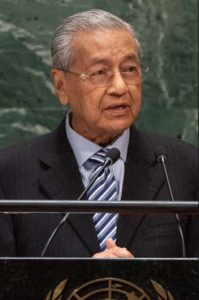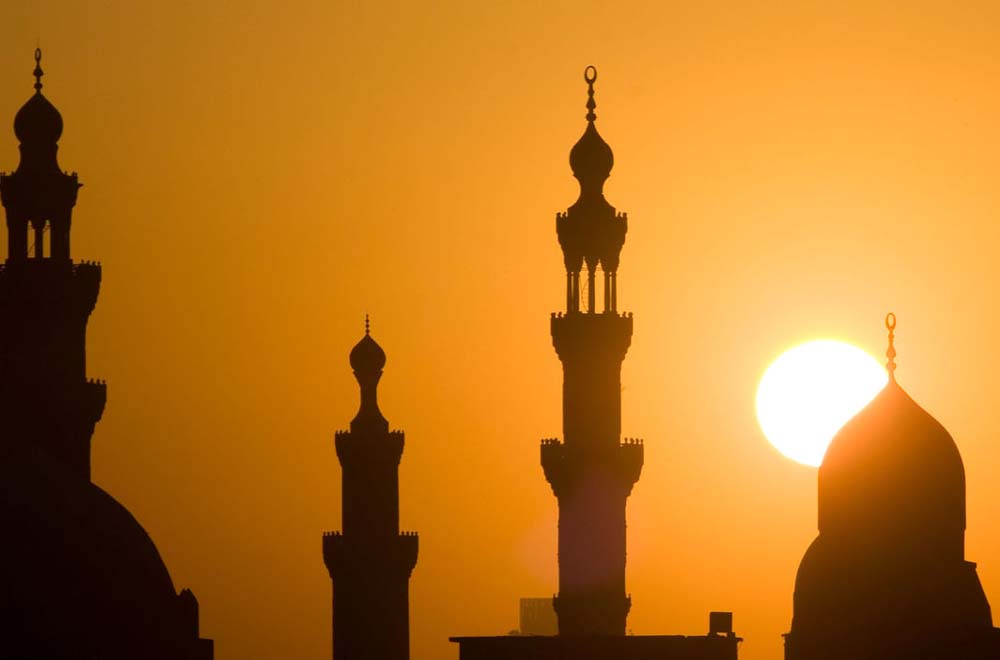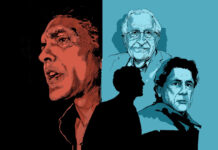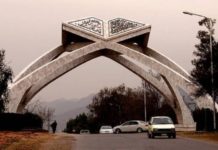Disclaimer: The Eqbal Ahmad Centre for Public Education (EACPE) encourages critical and independent thinking and believes in a free expression of one’s opinion. However, the views expressed in contributed articles are solely those of their respective authors and do not necessarily reflect the position or policy of the EACPE.
The word modernization has a controversial rhyme to it in the Islamic world; the religious authorities associate it with westernization and believe them to be analogous terms, while others confuse it with mere development. Neither of them could have been more erroneous.
After the Renaissance (the cultural, political, economic, artistic revival in Europe after the dark ages), between 1300s and 1600s, occurred the Industrial revolution, the age of discovery, French revolution, and the Protestant Reformation in Western Europe, these were the prerequisites, or “ingredients”, for the European modernization. These three parameters established a route through which these countries became modern 21st century nations- modernization does not have to follow the European standard; just because it was possible one way, does not mean that it is the only way.
The European modernization made the society exceedingly individualistic replacing the extended family model, a family with more than two parents, with the nuclear family model: The fabric of social cohesion, that had formed and sustained a thousand year period, gradually disintegrated into mere threads of free-thinking individuals; this along with the massive wealth from its colonies gave rise to the European modernization.
Since the fall of the Rome, the church gradually replaced the Roman hierarchy such that it essentially functioned as its religious mirror. This established an efficient and meritorious institution of religious authority; there were laity headed by deacons, deacons headed by priests, priests headed by bishops, headed by archbishops who were in turn headed by cardinals and finally came the Pope; the ultimate religious authority. Catholic church had penetrated deeply into the daily life of the masses systematically, and therefore possessed a great control over them; nothing controls the masses like religion, and the Church, it seems, was well aware.
The Church, had eschewed rationality in favour of the religious authority it possessed; they profited from the prevalent superstition in the society; the priest could wash you clean of your sins for a small price, and moreover they could issue you “indulgences”, basically a permit to certain sins, if you could “afford” it. Moreover they monopolized the religion; the bible remained in Latin for centuries, accessible to only those who knew this obselete language and these people, it turned out, were usually priests. When the Bible was first translated into English, to make it more accessible, it was deemed a heresy with the heretic burned at stake; that was the power of catholic church. This church, however, also united the Christian Europe throughout the dark ages; uniting not only the people of different languages and ethnicities but also the ever increasing kings and nobles of Europe; just like a Khalifa would in the Islamic world with the Emirs or Sultans below.
All was going well, if you prefer, until Martin Luther came along and stuck 95 pamphlets on the doors of various churches protesting against the church! He believed that church should not be able to forgive your sins or “indulgences”, and that every person was able, and could, communicate with God himself. He could read the bible himself too without the need of a priest.
“Heresy!”, the church proclaimed. This ultimately started a “civil war” in the Europe, which eventually proved to be the last nail in the coffin of the “religious cohesion” there.
This led not only to individualism and liberation of people from the church’s influence but also connoted something significantly greater, that is, for one that you could challenger the church’s position and authority without any consequence and thus this gave rise to free speech. Secondly, the religion, read it as church, no longer had any hold on the matters of the state or education and thus was born the term secularism.
This marked the era of free speech and free thought, nurtured by the Renaissance, which accelerated the scientific revolution.
The middle 20th century, particularly the time period between 1945 and 1975, was marked by the independence movements of previously colonized countries. The early era of such countries saw a rise in modern secular leadership preaching the development of infrastructure, human index, institutions, constitution and establishment of the educational systems along the lines of the European schools; some even went further to ban the veil of women, beards and turbans of men; which further increased the resentment in the religious communities. These ideas, even the idea of constitution itself, were vehemently opposed by the Clerics, who held reasonable power in government and popular support among people! To maintain their status quo, or to islamify the government according to them, they gave “fatwas” against the idea of constitutions, parliaments, democracy and all other “germs of modernization“; sometimes the clerics sided with the Kingdom, against the democratics (once an Iranian King annihilated the parliament house, with the support of clerics, in an attempt to abrogate the constitution).
Some of these modernists include Kemal Ataturk in Turkey, Raza Shah Pahlavi in Iran, Nasser in Egypt, Amanullah of Afghanistan and, of course, Zulifkar Bhutto in Pakistan; but unfortunately most of them were ousted by the fundamentalists; Pahlavi by Khomeini, Nasser by the Muslim Brotherhood, Amanullah by the Deobandis from India, and Zulifkar by the Islamist General Zia-ul-Haq.
Unlike in Europe, religion was never undermined by the population, there was no protestant movement. Islam already preached “individual salvation”, and, unlike christianity, they had no Pope or Priests rather they had “Mullahs“, who were more of religious scholars than Priests. And Islam was rarely violent; most of the wars during middle ages were fought mostly over political basis; although some were intertwined with religion to give the wars a zealous flavour, they were deeply political to their core. The wars between Sunni Ottomons and Shi’i Safavids, for example, may have religious rhyme to them but they were exceedingly political in their nature.
Even though the Muslim world managed to acquire the end products of the industrial revolution in Europe, they were not socially ‘ready’ to conceive it.
The Islamic Golden age, marked by rapid scientific and philosophical developments, itself could not flourish because of the friction that it later had with Islam. The merging of Islam with rationality, by some scholars, paved the way for a sect called “Mutazila” which preached an exceedingly rational and twisted version of Islam, totally against the prevalent orthodox Islamic beliefs; this sect was for a short period granted an official status by the Abbasid Caliphate. Had they not been eliminated, it would have changed Islam forever. Fortunately, this sect was, finally, subdued by prominent Islamic Clerics including Imam Hanbal and Al-Ghazali: Unfortunately with this sect also went the Muslim “age of discovery” and the scientific drive that had come with it; marking an end of the Islamic Golden age.
Even though the Muslim world managed to acquire the end products of the industrial revolution in Europe, they were not socially ‘ready’ to conceive it. This is not to state that they were inferior in thinking capacity, rather that they had not been through certain social, religious and political reforms that might have triggered it; with this, I believe, it was entirely possible, if given time, we would have evolved into an “Islamic modernist state” independently of Europe’s intervention.
But since it did not happen, every speculation is a guess, at best.
Muslims had reached the “gate of science” during the Golden age of Islam, way before the Europeans, but we had barely knocked it when the door fell on us; we had barely scratched the surface, when we were buried in it. We had developed proto-scientific method and steam engine in its crude form but we lacked something more vigorous; free thought, time and social drive.
We were promoted to the advance classes of calculus while we had specialized in botany; we were being modernized in the European fashion which was inherently incompatible with our social, cultural, ethical, moral and religious system. But since we did not go through a christianity-like Protestant reformation, we were lucky in a way; the Muslim world got to keep both the Islam and western modernization; although incompatible.
If Syed Jalaludin-Afgani was correct; we can have both of them if we find a way to juggle them without colliding; modernization does not have to handicap the religion as long as they inhabit different spheres of life; if one might separate the core principles of modernism from the integrated western culture.
After the Industrial revolution, probably induced by the Invention of Steam Engine by James Watt, external combustion engine was being integrated into almost every industry. Be it trains, cars, boats, factories; everything was better with an engine on it. New industries were cropping up all over the Europe, mainly centered around the major cities, from textiles to cement and this meant employment for the millions of proletariat. People who had worked in agricultural sectors for centuries finally had an alternative- way more dependable and lucrative yet less labour intensive. It was a economic panacea! Hearing about this ‘get rich quickly’ scheme people flocked to the industrial hubs, deteriorating the already despicable living conditions over there; some of these places were worse than the typical slums of a third world country today!
Factories being few, and people being many, there was an intense competition for even the most menial posts. With such uncertainty, people had to be mobile and ready to migrate to wherever the new jobs were springing up usually the places with heinous living conditions. This entire process of relocating to new areas rapidly, and leaving the relatives or friends behind to a start a new life or family in another corner of he country, had disastrous social and psychological effects on the society but fortunately in Europe it happened relatively slowly! In Muslim world, it was a different story. We found ourselves with the state-of-the-art technologies, industries and science without having to search for it; but it really is natural, you do not reinvent a wheel, when it already has been invented; you just get it.
It is why even today an exodus of people in Muslim countries, especially, are migrating from rural countryside to cosmopolitan cities leaving their social fabric for a better living yet an isolated one. Our once prevalent “muhallah” culture, with a closely knitted social structure, has since been getting disrupted by the rise of new western inspired housing colonies and societies around the cosmopolitan cities. We have not completely adapted to the “modernization”; we are still facing the aftershocks!
The revolutionary social movements such as the French Revolution and English Civil wars had set a stage for the establishment of republics and liberal democracies in Europe; the parliament was formed, absolute monarchy was abolished, the rights of common men were constituted, and soon in subsequent years universal suffrage was sought. All of these revolutionary developments were actively fought for by the Europeans, who gradually grew accustomed to the responsibility, process and the art of governing a state; the independence of the colonized countries, later after the World War 2, left them unprepared for democracy, for many would oscillate between dictatorships, martial laws and democracy for years; much like 75 years after the French revolution (coup de’etat by Napolean Bonaparte).
Arab Spring movement, starting in 2010s, also followed the similar model, 220 years after the French revolution and resulted in oust of dictators in Tunisia, Egypt, Libya and Yemen; with reforms in Kuwait, Lebanon, Oman, Morocco, Jordan and Palestine.
The democracy in some states, such as Pakistan, eventually evolved into an Oligarchy, rule and the power of the few, and Plutocracy, the rule and power of the wealthy, where a few influential and wealthy families would inherit the seats of the parliament and reins of the state with miniscule political mobility.
The last and final factor of modernization after protestant reforms, Industrial revolution and French Revolution is the age of discovery. As the wealth accumulated in Europe, and materialism with it, more and more nobles started investing in means to procure spices, silk, tea, sugar and other eastern ‘goodies’. Because of the bad blood between Europeans and Muslims because of crusades and other political reasons, including the expulsion of Moors from Spainish heartland and Iberian Peninsula, the merchants of Europe had a hard time dealing with their Muslim counterparts yet the rising middle class meant more demand for the “eastern goodies”. So they started to look for new trade routes; the ancient silk route was no longer favourable.
This led to the “age of discovery”, where European countries started finding new routes to the Indian subcontinent and the Indies (islands around India; Phillipines for instance). This discovery for India led to Colombus hitting a jackpot; he found America (and the west indies); a massive continent, including north and south America, occupying Forty three million kilometers square, almost as huge as Asia, with innumerable resources to exploit. And, gradually they found the good old India too. Now why is this important? The Renaissance, scientific developments and industrial revolution had rendered the Europeans more than just household goods; they were militarily unopposed; no other civilization on the planet could undermine them in any possible way, except in faith, if that counts. This was a harbinger for colonialism. No arrow or spear could hold against the musket; the British were brutal yet quick. Sometimes politics was more efficient than wars. They colonized and oppressed with only the economic growth of their respective countries in mind. Contrary to common belief, they had nothing to do with the demise of Islam or Hinduism for that matter; they were purely driven, at least initially, by their monetary self interests; the days of zealous Crusaders waging wars to drive ‘heathens’ out of the holy sites were over! They milked these countries dry, and took all of it back to Europe (one estimate, in a recently published paper by Columbia University Press, suggests that British stole 45 trillion dollars from the subcontinent between 1768 and 1938 which is 17 times the annual GDP of United Kingdom today; this was used to fund military conquests into China, for instance, putting down 1857 rebellion and, ofcourse, to fund the European Industrialization and development). This concentrated world economy, which was previously centered around Asia (in 1775 eighty percent of the worlds GDP was accounted by the Ottomon empire in Turkey, Moghuls in India, Safavid in Persia and, Ming and Qing dynasties in China), into Europe. It was huge! The Europeans had not seen better days; they found both the crude materials and markets in their colonies. During this era the Muslim world, unfortunately, was silent: ottomon empire was falling, then called “the sick man of Europe”; it could barely control its already massive territory, let alone colonize new one.
After this, finally, the Europeans had the final ingredient for the philosopher’s stone; “resources”.
Their social system was ripe for modernization, they had rejected spirituality for materials, eliminated their social structure in favour of individualism and rejected christianity in the face of science. Resources came next; abundant resources accelerate development greatly. You need resources; to construct roads, buildings, power generators, grids, schools, bridges, factories, pipelines, oil refineries- yes oil.
When the internal combustion engine was invented in 1876, something changed. Previously anything could be burned, externally combusted, to run them but these internal engines changed everything. They were more compact, more efficient, more powerful yet less costly to produce; they used liquid fuel. With internal combustion engines incorporated everywhere- trains, planes and especially personal automobiles- the demand for oil ballooned.
In the mid 20th century massive reservoirs of oil were discovered in middle east; Muslims finally found a trump card. Fast forward today, the oil money accelerated the development of many middle-east countries; they perfectly emulated the west in the infrastructure development. The otherwise barren desert was interlaced with intricate road network; the sizzling hot desert beaches were filled with massive skyscrapers; the pearl-diving Arabs found themselves sitting on the pile of riches. With these resources, they bought everything: Saudia Arabia exchanged oil for advanced military supplies from U.S. They bought the wheel without having to invent one: instead of dealing with the social effects of the Industrial boom, they paid low-wage workers from poor countries to occupy this space.
U.A.E., Qatar and even Saudia Arabia are striving to diversify their economy, depending less and less on oil revenue. Muhammad Bin Salman, the crown Prince of Saudia Arabia, is limiting the authority of the hardline clerics and promoting women rights; following the European model somewhat while still maintaining absolute monarchy intact.
The solution might lie in the commiseration of Islam and modernism to constitute Islamic modernism.
Part of the Muslim world, Turkey for example, has almost caught up with Europe; what took Europe centuries took it mere decades. It is the 6th largest European Economy today. The radical reforms in favour of secularism, freedom of speech, thought and religion emulated the church protestant movement; the oust of Caliphate, and democratizion followed French revolution; incorporation of nuclear family model against extended family model emulated the impacts of Industrial revolution; Foreign investment, tourism industry and various other exports have emulated the colonialism as a source of revenue. It has followed the tried European modernization model religiously, to some avail because of which it faces an identity crises today; it has westernized, significantly more than it has modernized.
Both Turkey and Middle Eastern countries have been unsuccessful in juggling Islam with modernization, leaning towards the latter; will other countries be able to accomplish this? Only time will tell.
Most of the Muslim states, developed or not, are usually divided into two ideological groups; one standing with modernism and the other with traditional Islamic ideology- both having a significant following. The traditional Islamic clerics and Salafis label modernism as a “bidet” and “neo-mutazila”, respectively, while modernists view them as redundant clergymen having no place in the 21st century.
The solution might lie in the commiseration of Islam and modernism to constitute Islamic modernism; the supporters include Allama Muhammad Iqbal, Shibli Nomani, Sir Syed Ahmed Khan, Chiragh Ali, Javed Ahmed Ghamidi and Tahir ul Qadri. Yet no practical model of such a system has been adopted or even unanimous agreed upon.
Mahatir Muhammad, current Prime Minister of Malaysia, has described it in these words:
 “Only when Islam is interpreted so as to be relevant in a world which is different from what it was 1400 years ago, can Islam be regarded as a religion for all ages.”
“Only when Islam is interpreted so as to be relevant in a world which is different from what it was 1400 years ago, can Islam be regarded as a religion for all ages.”
Just like a student, who jumps a year into the next class, or multiple classes in our example, modernization is a hard and arduous process! And maintaining its neat balance with Islam is ever more daunting: we need a comprehensive solution reconciling Islam with democracy, rationality, civil rights, nationalism, equality and progress.
This might take decades, our lifetime and even more than a century for Pakistan to become a developed country, or a true developed Islamic country if we are lucky enough. We need to hold together, both, the Islamic rope and that of current modernization without getting swayed by either to the extremes. We can only hope for the best!
A contributed article by Muhammad Usairam Cheema
“Only when Islam is interpreted so as to be relevant in a world which is different from what it was 1400 years ago, can Islam be regarded as a religion for all ages.”








Very critical thinking. I approve